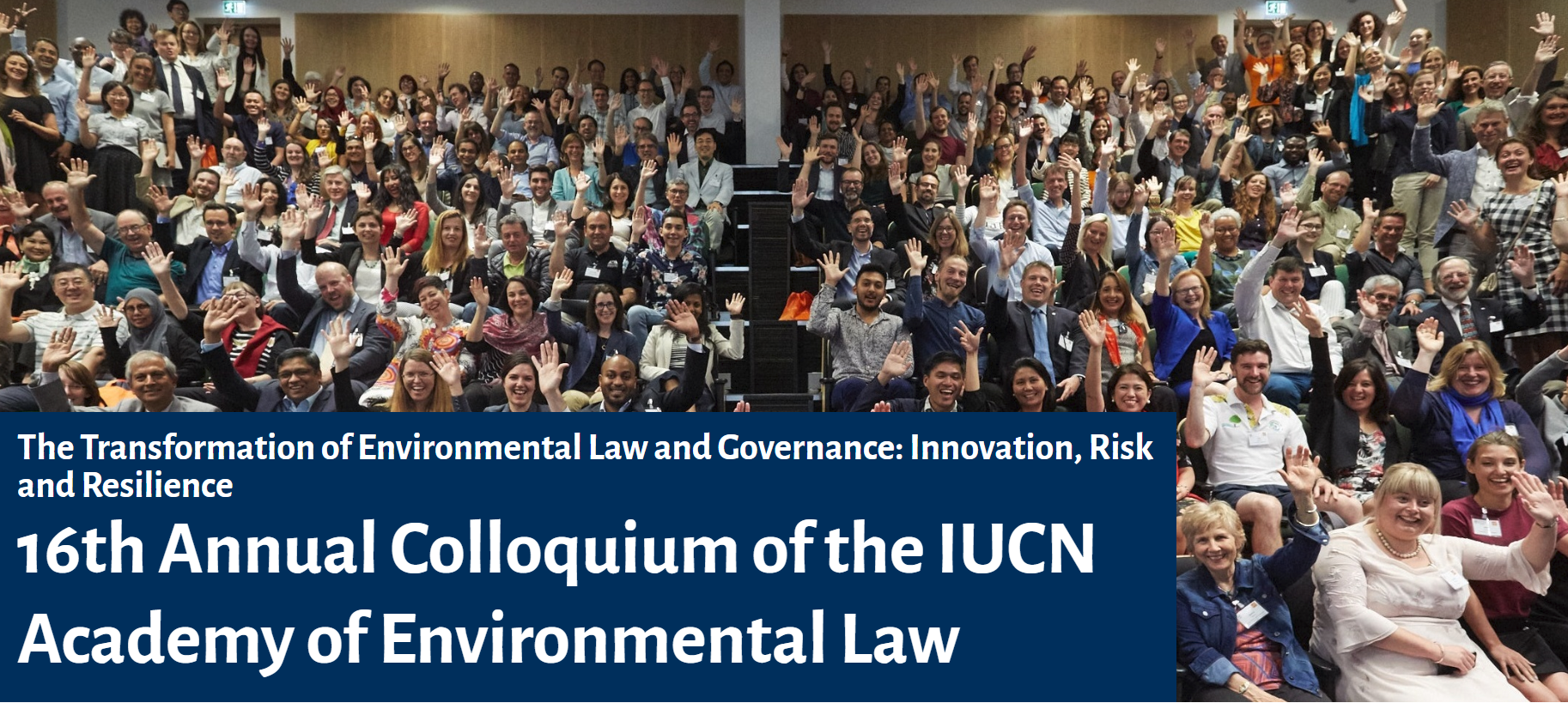The 16th IUCN Academy of Environmental Law Annual Colloquium with the theme “The Transformation of Environmental Law and Governance: Innovation, Risk and Resilience” was held at the University of Strathclyde, Glasgow, Scotland, UK, from Wednesday 4th July to Friday 6th July 2018.
Laura Movilla from the University of Vigo chaired the Session “Voices, Rights and Interactions in Biodiversity Law”, on 4th July 2018; and presented the communication “Evolution and challenges in the regulation of marine genetic resources in the European Union”, in the session “Challenges in Biodiversity and Traditional Knowledge Governance”, on 5th July 2018.
The event brought together over 300 participants from six continents to discuss current international, comparative, national, and local environmental law issues.
Summary of the communication by Laura Movilla:
The European Union is a great user and host of own and foreign genetic resources through its pharmaceutical sector and ex-situ network of botanical gardens, collections and gene banks. In the specific field of marine genetic resources, blue biotechnology is one of five sectors that are being promoted within the European Blue Growth Strategy. However, its applicable legal framework is still quite complex and uncertain. The aim of this paper is to explore these regulatory challenges. At the international level, the legal regime of marine genetic resources is determined by the confluence of norms from the law of the sea, the system of the CBD and intellectual property and patent law. At the same time, its specific legal regime will depend on 1) where those maritime genetic resources were originally located: in areas under national jurisdiction, areas beyond national jurisdiction, in the Antarctic Maritime Area or marine protected areas; and 2) when they were acceded, before or after the entry into force of the CBD and the Nagoya Protocol. For its part, the EU, which was very active in the negotiations of the Nagoya Protocol, adopted in 2014 the Regulation 511/2014, on compliance measures for users from the Nagoya Protocol on Access to Genetic Resources and the Fair and Equitable Sharing of Benefits Arising from their Utilization in the Union. Soon after, an implementing regulation and a guidance document on the scope of the EU ABS Regulation were also adopted in 2015 and 2016. Nevertheless, there are still a lot of ambiguities and challenges in this young regulation (e.g. the penalties that Member States must establish in case of infringement of the ABS regulation by users) and its implementation by upstream and downstream users (e.g. the correct identification of its obligations or the effective registration of collections and recognition of good practices). At the same time, upcoming developments such a first report of the European Commission on the application and effectiveness of this Regulation, as well as additional sectorial guidance are expected to bring more clarity on the European legal regime on maritime genetic resources.
Find more at the website of the colloquium here.

